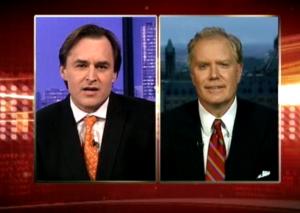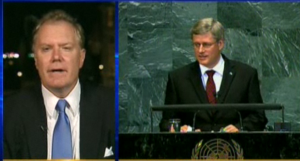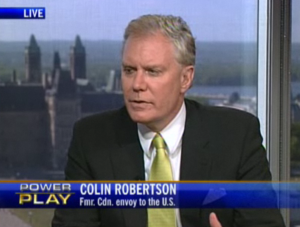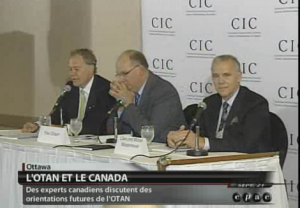From the Financial Post, October 20, 2010
There are lots of polls predicting the outcome of the U.S. mid-terms, but the one that counts is already released. U.S. unemployment remains stuck at 9.6% and America continues to shed jobs. At the time they introduced the stimulus package, the Democrats predicted that, by now, the unemployment rate would be 8%. And that gap — in jobs and its effect on faith in government — tells you all you need to know about the Nov. 2 elections. Canadians should pay careful attention least we get sideswiped.
Fifteen million Americans have been without a job for six months or more. For youth, a key part of the Obama coalition in 2008, unemployment is over 25%. For minorities, Latinos and African Americans, who turned out big time to elect President Barack Obama, the unemployment figure is closer to 30%, especially in the big cities. It’s devastating news for the Democrats.
The gulf between Wall Street and Main Street continues to widen. In 1980, 8% of U.S. earners received 16% of national income. That same proportion now falls into the hands of the top 1% while the top 20% take more than half. One in four Americans say they have “absolutely no confidence” in Congress, banks, the federal government, blogs and organized labour, according to an AP-NCC poll. The military and uniformed services come first, at 43%. Not great numbers for a nation that prides itself on its institutions, and they do a lot to explain the rise of the Tea Party movement. Americans think their country is headed in the wrong direction and many fear the nation in decline.
For America’s biggest trading partner — Canada — the U.S. malaise is very bad news. A recent NBC News/Wall Street Journal poll says that 69% of Americans believe free trade agreements with other countries have cost jobs in the United States, while just 18% believe they have created jobs. A 53% majority — up from 46% three years ago and from 30% in 1999 — believes that trade agreements have hurt the U.S.
Opposition to free trade agreements, including NAFTA, is particularly strong (61%) among Americans who define themselves as supporters of the Tea Party movement, just 4% less than union members (65%). The greatest shift against free trade comes from relatively affluent Americans, i.e., those with annual incomes of more than US$75,000.
“Make it in America” is the new “Buy America” and Senate and House Democratic candidates have come out with ads condemning free trade agreements. While China will be the main target of congressional action, we’ll inevitably suffer collateral damage.
We need to do more of what John Manley, chief executive of the Canadian Council of Chief Executives, told an audience in Washington earlier this month when asked about efforts by Ohio Governor Ted Strickland to turn the campaign around by arguing that free trade with countries like Canada and Mexico has cost the state 400,000 jobs. The numbers, said Manley, tell a different story. Canada is Ohio’s top export market, purchasing 44% of the state’s international exports. More than 600,000 Canadians visit Ohio each year, spending $138-million. Trade between Ohio and Canada is $35-billion a year. Ohio enjoys a trade surplus. Most importantly, 276,000 Ohio jobs depend on trade with Canada. Manley said that he was happy to set the record straight, but “I would be even happier if more Americans were prepared to stand up and explain why liberalized trade is good for the United States and good for the world.”
Perrin Beatty, CEO of the Canadian Chamber of Commerce, had a similar message when he was in Washington in June. He reminded his Capitol Hill audience that Canada is the largest export market for 35 U.S. states and that the U.S. does more in two-way trade with Canada than it does with Germany, Japan, China and the U.K. combined.
Obama wants to double American exports to create jobs. Supply chain dynamics give us an opportunity to be part of that solution. Our political, business, and labour leadership need to develop a strategic plan built around jobs and growth that goes way beyond the FTA/NAFTA. Pursuing Canadian interests in the U.S. through incrementalism won’t work any more.
We need to take a common message about the facts of Canadian investment and the American jobs that depend on trade with Canada into every state and major U.S. city as well as in Washington. We need unity of action and shared purpose that includes premiers pitching governors and labour leaders engaging their American brethren. The mid-terms are a wake-up call for Canadians.




